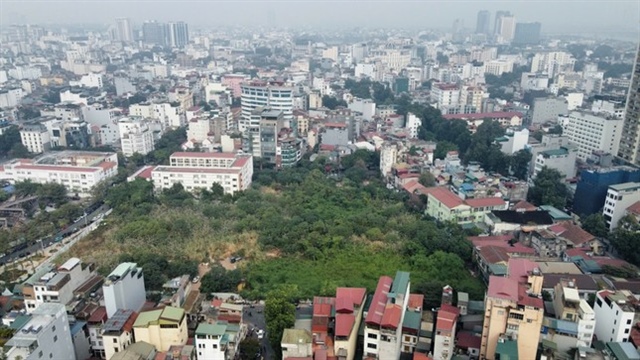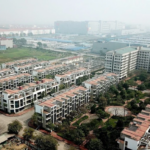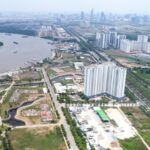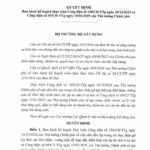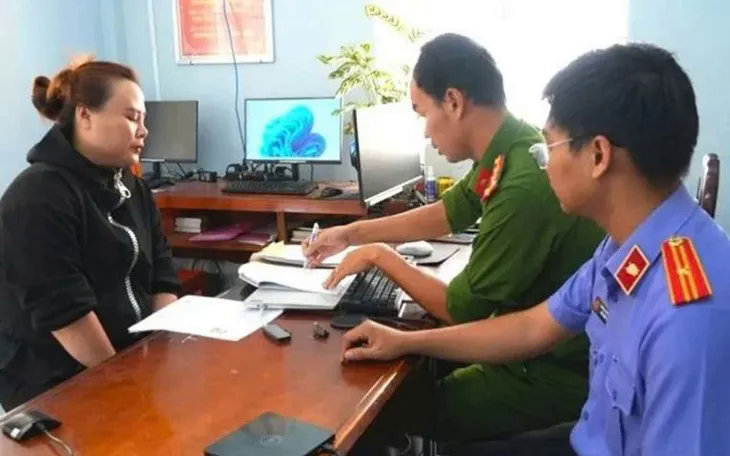Addressing the Root Cause of Land Valuation Challenges
Dr. Nguyen Van Khoi, President of the Vietnam Real Estate Association, believes that the real estate industry significantly contributes to GDP and has a profound impact on other sectors of the economy. Therefore, to ensure a healthy and sustainable real estate market, it is essential to address the existing challenges.
According to Mr. Khoi, the most significant challenge currently facing the real estate market is land valuation. In many localities, several real estate projects have been delayed due to obstacles in land valuation and land use charge calculation.
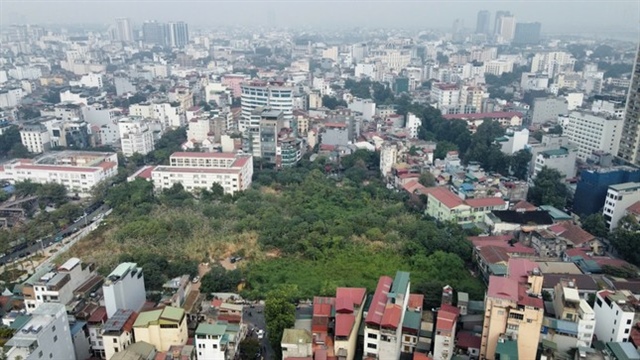
There is a need to focus on resolving the root cause of land valuation challenges, thereby boosting supply and facilitating the recovery and development of the real estate market. Illustrative image. |
In reality, the determination of land prices to calculate financial obligations for enterprises has been inconsistent, leading to delays in project approval and implementation. Some projects, despite completing investment procedures, are still awaiting specific guidance on land use charge calculation. This forces enterprises to adjust their financial plans, resulting in project bottlenecks.
The President of the Vietnam Real Estate Association emphasizes that the top priority now is to address land valuation challenges to support enterprises in promptly implementing their projects. This will contribute to increasing the supply of real estate and promoting the recovery and development of the real estate market.
Therefore, the President of the Vietnam Real Estate Association proposes that ministries and sectors provide specific advice on land valuation methods to localities and regulate the application of these methods according to the Government’s Decree No. 71/2024/ND-CP on land prices.
“The issue here is the process of determining the responsibility of the consulting organization and the highest authority, which is the chairman of the provincial People’s Committee, who is accountable to the Government,” said the President of the Vietnam Real Estate Association. “Before the consulting organization proposes a specific price, the competent authority must agree on the land valuation method for a particular project, along with the basis for applying this method, and only then can the stage of calculating the specific land price begin.”
At the same time, he also noted that there are currently no specific regulations for calculating specific land prices. Therefore, the state management agency in the field of land needs to work with localities to consider and choose suitable land valuation methods, as this is the root cause of resolving land valuation challenges in localities today.
Numerous shortcomings
Regarding land valuation, Mr. Le Van Binh, Deputy Director of the Land Department, Ministry of Agriculture and Environment, said that when advising the National Assembly on issuing the amended Land Law, the Ministry of Finance and the Ministry of Natural Resources and Environment identified land prices as the most critical factor. The amended Land Law has expanded the application of the land price list and valuation methods towards greater transparency.
The Ministry has been working tirelessly to address difficulties related to land valuation by issuing numerous decrees and circulars. Under the 2013 Land Law, the Ministry issued Circular 36 based on Decree 44. Specifically, Decree No. 44/2014/ND-CP stipulated five land valuation methods: direct comparison, extraction, income, surplus, and land price adjustment coefficient, while also clarifying the conditions for applying each method. Circular 36 was responsible for providing detailed regulations on land valuation methods, procedures for building land price tables, specific land valuation, and consulting for land price determination.
Subsequently, with the enactment of the 2024 Land Law, Circular 36 was amended and elevated to become Decree 12. After implementing Decree 12 for some time, the Government issued Decree 71, which provided detailed regulations on the procedures and content of land price determination using four methods. In addition, Decree 102 was also issued to provide a legal basis for land revocation for projects where investors delayed paying land use charges or land rent.
In the case of land auctions, the winning bid price is considered the official land price, and there is no need for revaluation. On the other hand, for projects that are subject to bidding for investor selection, land prices are determined using methods such as comparison and surplus to prevent low-price valuation, causing budget losses, and creating a more transparent mechanism in the process of allocating land and leasing land,” said Mr. Binh.
However, according to Mr. Binh, there are still many shortcomings in implementation, especially at the local level. There are differences in perspectives between land valuation consulting units, the land price appraisal council, and the competent authority for deciding land prices.
In some countries, the responsibility for land valuation rests with consulting units, and they are legally accountable for any errors. This is a lesson that needs to be considered to enhance accountability and effectiveness in land valuation in Vietnam.
The Ministry also commits to continuing to accompany localities and enterprises, listening to feedback, and finding solutions to overcome difficulties in the actual implementation process.
Ninh Phan
– 10:38 21/02/2025
Unlocking Obstacles: Unlocking Opportunities in the Real Estate Market
With the recognition of new opportunities, the shape of the new cycle has become clearer, and indeed, real estate businesses have embraced a new mindset.
The Ministry of Construction to Inspect Real Estate Projects with Abnormal Price Surges
The challenge of addressing the complexities of social housing projects and curbing price manipulation and real estate speculation falls squarely on the shoulders of the Ministry of Construction. In the coming period, the Ministry, in conjunction with the Department of Housing and Real Estate Market Management, the Construction Inspectorate, and the Legal Affairs Department, will work to overcome these hurdles and bring about much-needed reforms.
The 2025 Land Price List Surges: A Warning to Investors Amidst the Euphoria
After lying dormant for almost 3 years, the land market in provinces neighboring Ho Chi Minh City, such as Binh Duong, Dong Nai, Binh Thuan, and Lam Dong, is showing positive signs of recovery. However, experts predict that the market is unlikely to experience a significant surge in 2025.

